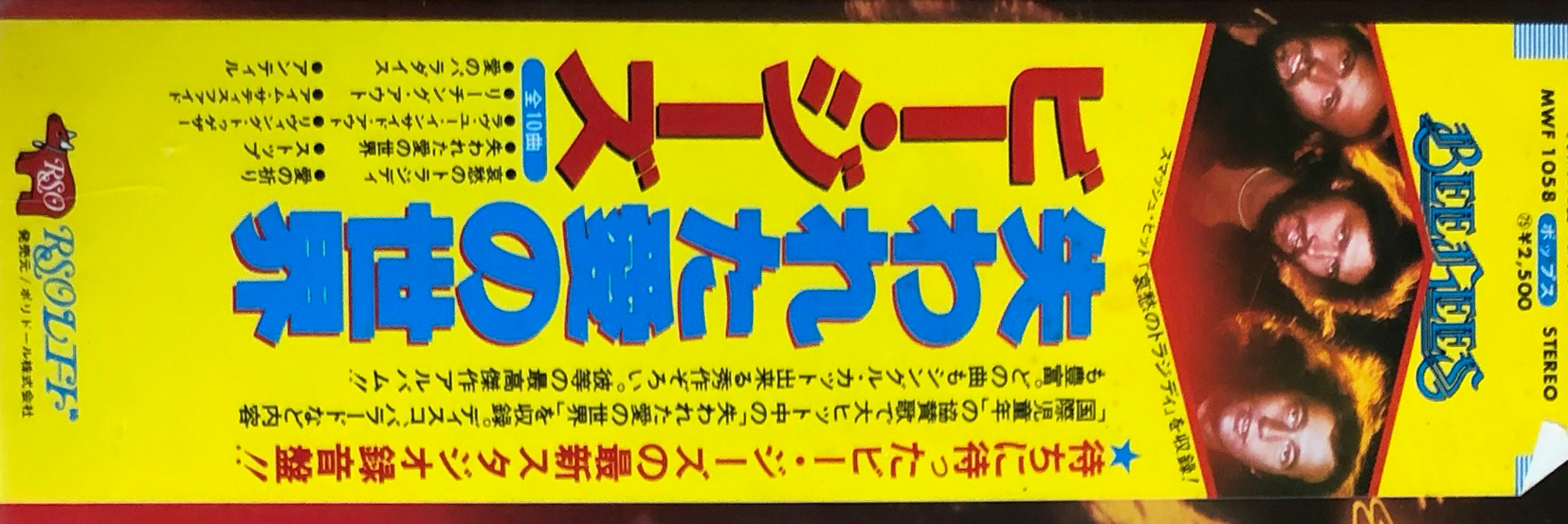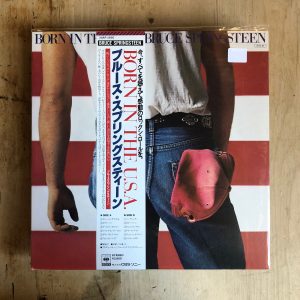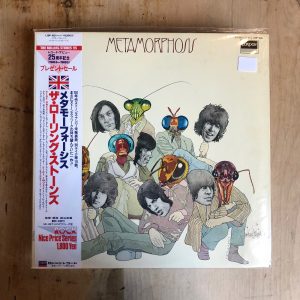 Any true audiophile will know how good Japanese vinyl pressing are but for those of you who don't let me explain a little about these sonically awesome recordings.
The rise of Japanese pressings happened in the 1970's when in 1973 the Organisation of Arab Petroleum Exporting Countries placed an oil embargo on, amongst many, the UK and the USA. This embargo forced vinyl manufactures in those counties to use recycled vinyl. Japanese vinyl manufactures still used virgin vinyl which made their pressing quieter than their recycled counterparts in the UK and the US, and JVC (The Japan Victor Company, est. 1927) began to produce Super Vinyl.
Super Vinyl, is actually pretty super. Now this might not mean much to anyone who's never actually listened to a vinyl, yes you Finn, but the superness comes from it's extremely low signal to noise ratio. Dave, what the hell is signal to noise ratio?? For those of you without any background in sound, this means that the cracks, snaps and pops you hear when the vinyl is spinning are quiet compared to other, more inferior, vinyls manufacturing processes.
The sound of these vinyls come down to the mastering in the pressing process. With more Western mastering processes there is an emphasis to make the music 'kick' which means there can be more distortion. With Japanese pressings, the emphasis is all on the clarity. Distortion is low and each sound has it's own space. It's really is quite beautiful, if you're a total sonic geek.
There were, of course, masters coming from the original master that would have been released in the rest of the world. In these cases you were getting the original sound just on a super quiet vinyl.
To have a conversation Japanese vinyl without talking about Obi Strips would be like having pie without gravy.
Any true audiophile will know how good Japanese vinyl pressing are but for those of you who don't let me explain a little about these sonically awesome recordings.
The rise of Japanese pressings happened in the 1970's when in 1973 the Organisation of Arab Petroleum Exporting Countries placed an oil embargo on, amongst many, the UK and the USA. This embargo forced vinyl manufactures in those counties to use recycled vinyl. Japanese vinyl manufactures still used virgin vinyl which made their pressing quieter than their recycled counterparts in the UK and the US, and JVC (The Japan Victor Company, est. 1927) began to produce Super Vinyl.
Super Vinyl, is actually pretty super. Now this might not mean much to anyone who's never actually listened to a vinyl, yes you Finn, but the superness comes from it's extremely low signal to noise ratio. Dave, what the hell is signal to noise ratio?? For those of you without any background in sound, this means that the cracks, snaps and pops you hear when the vinyl is spinning are quiet compared to other, more inferior, vinyls manufacturing processes.
The sound of these vinyls come down to the mastering in the pressing process. With more Western mastering processes there is an emphasis to make the music 'kick' which means there can be more distortion. With Japanese pressings, the emphasis is all on the clarity. Distortion is low and each sound has it's own space. It's really is quite beautiful, if you're a total sonic geek.
There were, of course, masters coming from the original master that would have been released in the rest of the world. In these cases you were getting the original sound just on a super quiet vinyl.
To have a conversation Japanese vinyl without talking about Obi Strips would be like having pie without gravy.
What Are Obi Strips?
Obi roughly translates to 'belt' in English. The Obi Strip wraps round the record jacket and contains most of the information about the album but in Japanese. These were really useful for Japanese speakers, obviously, whom might not be able to speak another language. The Obi strip would have info like track listing, price, realise date and all the general info that anyone buying an album would need. These strips are very easy to lose and very easy to tear and very rare. For a collector they are really valuable and pretty important to the integrity of the record. [one_third]John Lennon, Walls and Bridges
[caption id="attachment_1868" align="aligncenter" width="300"] John Lennon, Walls and Bridges, Japanese Vinyl[/caption][/one_third] [one_third]
Bruce Springsteen, Born in the USA
[caption id="attachment_1870" align="aligncenter" width="300"] Bruce Springsteen Born in the USA, Japanese Vinyl[/caption]
[/one_third] [one_third]
Bruce Springsteen Born in the USA, Japanese Vinyl[/caption]
[/one_third] [one_third]
The Rolling Stones, Metamorphosis
[caption id="attachment_1871" align="aligncenter" width="300"] The Rolling Stones, Metamorphosis, Japanese Vinyl[/caption]
[/one_third]
The Rolling Stones, Metamorphosis, Japanese Vinyl[/caption]
[/one_third]

